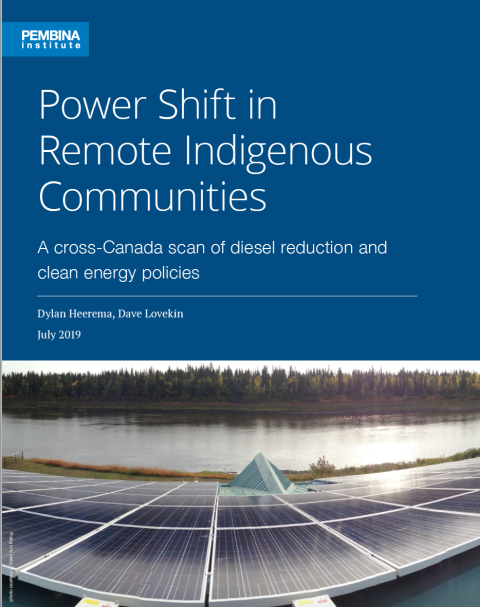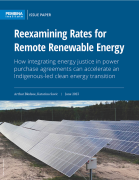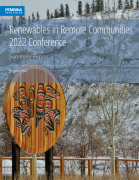This report was published in 2019. An updated analysis, published September 23, 2025, is now available: Restoring the flow: Policies to support Indigenous-led clean energy in remote communities.
There are approximately 170 remote Indigenous communities in Canada, found in nearly every province and territory, with a combined population of over 100,000 people. Remote Indigenous communities are overwhelmingly reliant on diesel fuel for heating and electricity generation. This expensive and polluting fuel must be transported into the community at high cost, requiring road, barge and often plane transportation. Burning diesel for heat and power also creates local health and environmental issues.
Reducing reliance on diesel fuel by advancing clean energy and energy efficiency is one way to address these and other issues facing remote communities. Effective government policies and programs are one critical component in advancing community-led clean energy projects in remote Indigenous communities. In this report, we conduct a cross-Canada scan to evaluate the current policy environment for community-led projects in each province and territory with remote Indigenous communities. Three categories are considered:
- Government direction: Targets, plans, strategies and funding/capacity building programs (provincial/territorial) that support the transition of remote communities to clean energy.
- Utility and regulatory policy: The way electric utilities servicing remote community microgrids are regulated and governed, how they procure energy, and their commitment to work with proponents of clean energy projects in these communities.
- Community project experience: The presence of community-led clean energy projects in operation or development. This gives good insight into how effectively each jurisdiction has created a supportive environment for such projects to succeed.








